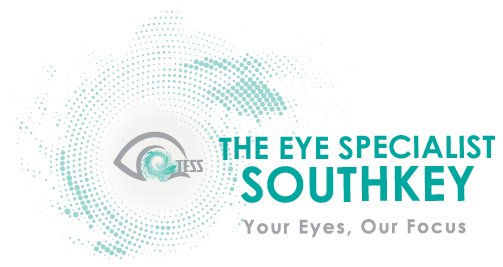Glaucoma
What is Glaucoma
Glaucoma is a group of eye diseases that can damage the optic nerve and cause irreversible vision loss if left untreated. With early diagnosis and appropriate treatment, vision loss can be prevented or slowed down.
Glaucoma often develops gradually and may not have any noticeable symptoms in its early stages. As the condition progresses, symptoms may include:
Glaucoma Symptoms:
- Loss of peripheral (side) vision
- Tunnel vision
- Blurred or hazy vision
- Halos around lights
- Eye pain
- Redness in the eye
- Nausea or vomiting (in acute angle-closure glaucoma)
Vision with Glaucoma
Vision loss from glaucoma can vary depending on the type and severity of the condition. In the early stages, glaucoma may not have any noticeable symptoms or vision changes. As the condition progresses, vision loss typically begins with the peripheral (side) vision and may eventually lead to tunnel vision, where the person sees only a small area directly in front of them.

Normal Vision

Early Glaucoma

Advanced Glaucoma

End-stage Glaucoma
Book an Appointment
In advanced cases, glaucoma can cause complete blindness. However, it’s important to note that many people with glaucoma can maintain good vision with proper treatment and monitoring.
It’s crucial to have regular eye exams, especially if you have any risk factors for glaucoma, to detect the condition early and prevent vision loss. If you have any concerns about your vision, contact your eye doctor or schedule an appointment with an ophthalmologist who specializes in the diagnosis and treatment of glaucoma.








